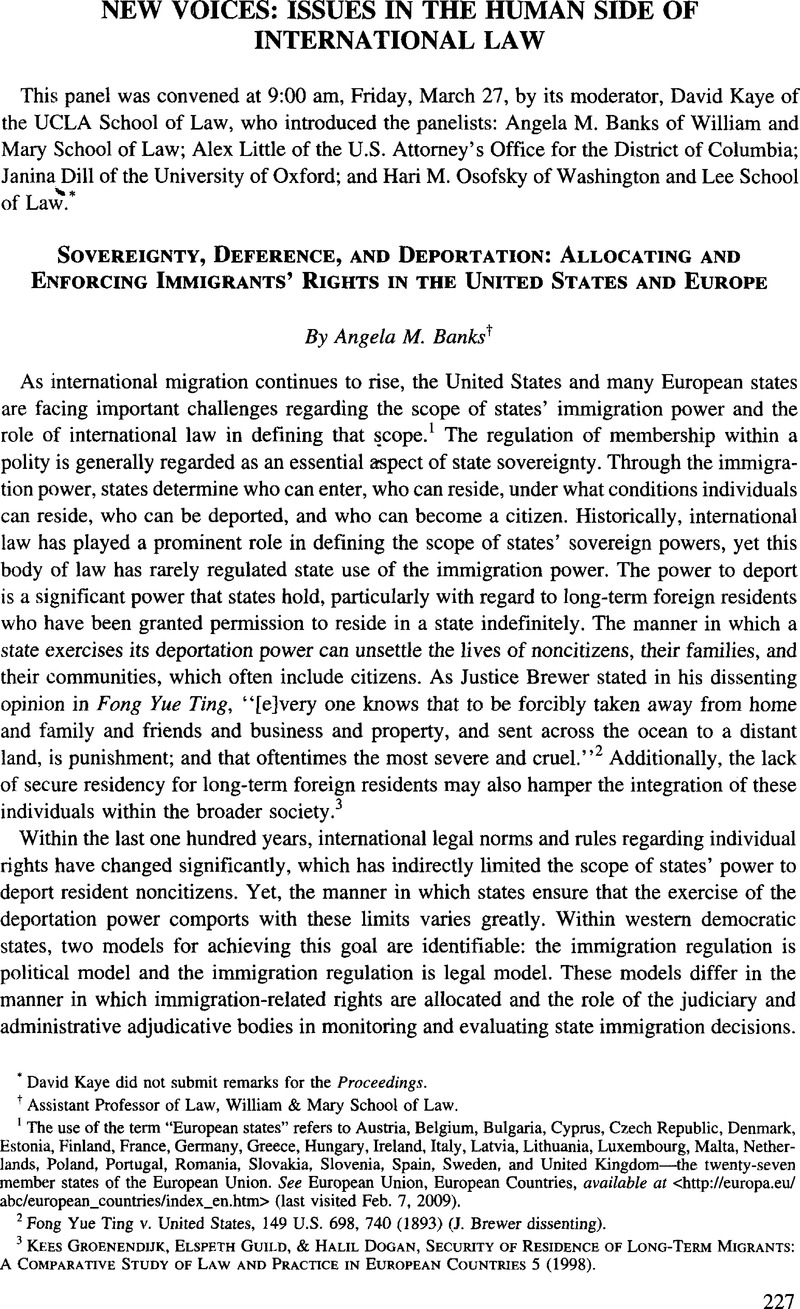No CrossRef data available.
Published online by Cambridge University Press: 28 February 2017

1 The use of the term “European states” refers to Austria, Belgium, Bulgaria, Cyprus, Czech Republic, Denmark, Estonia, Finland, France, Germany, Greece, Hungary, Ireland, Italy, Latvia, Lithuania, Luxembourg, Malta, Netherlands, Poland, Portugal, Romania, Slovakia, Slovenia, Spain, Sweden, and United Kingdom—the twenty-seven member states of the European Union. See European Union, European Countries, available at <http://europa.eu/abc/european_countries/index_en.htm> (last visited Feb. 7, 2009).
2 Fong Yue Ting v. United States, 149 U.S. 698, 740 (1893) (J. Brewer dissenting).
3 Groenendijk, Kees, Guild, Elspeth, & Dogan, Halil, Security of Residence of Long-Term Migrants: A Comparative Study of Law and Practice in European Countries 5 (1998)Google Scholar.
4 The explicit limits created by the European Union directives are based on the implicit limits created by Article 8 of the ECHR and the relevant decisions by the European Court of Human Rights. Council Directive 2003/86, 2003 O.J. (L 251) 12 (EC) (addressing right to family reunification); Council Directive 2003/109, 2004 O.S. (L 16) 44, at arts. 12 (EC) (concerning status of third-country nationals who are long-term residents).